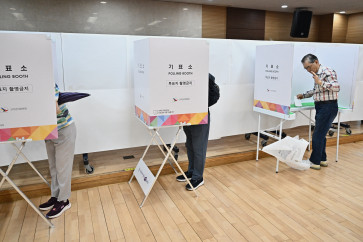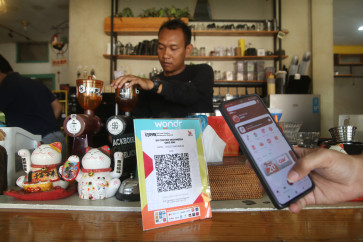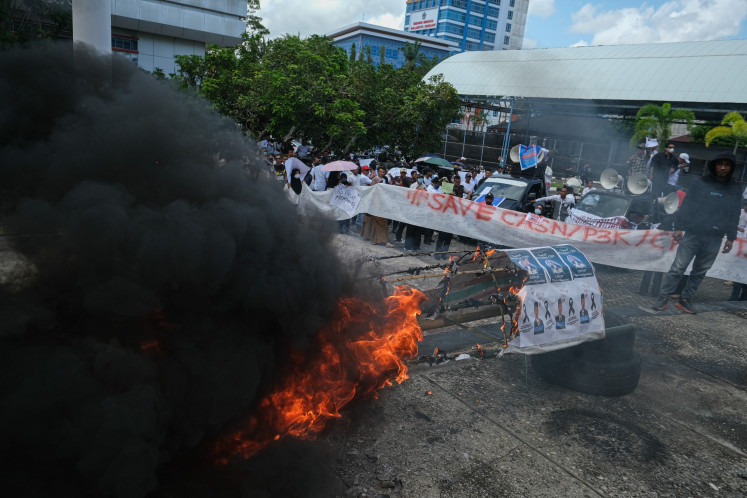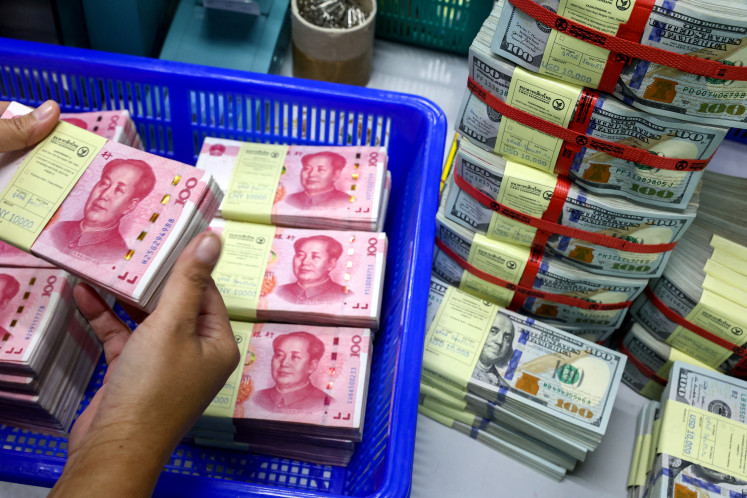Organ trading case triggers ethical debate
The arrest of three men suspected of being members of an organ trafficking syndicate has triggered legal and ethical debate over the issue
Change text size
Gift Premium Articles
to Anyone

T
he arrest of three men suspected of being members of an organ trafficking syndicate has triggered legal and ethical debate over the issue.
The Indonesian Medical Disciplinary Council (MKDKI) said on Monday that organ trafficking could not be justified by any means.
'Organ trafficking is totally wrong. In Indonesia, it is clearly banned whatever the reason may be,' the council's head, Ali Baziad, told The Jakarta Post.
The National Police have named and detained three men ' Yana Priatna alias Amang, Dedi Supriadi bin Oman Rahman and Kwok Herry Susanto ' as suspects on allegations of harvesting and selling kidneys to hospitals. Such a practice violates Law No. 36/2009 on health and Law No. 21/2007 on human trafficking.
The three men allegedly promised 15 victims large sums of money for their kidneys, but they were only given Rp 70 million (US$5,050) after undergoing organ transplants.
Furthermore, the suspects promised that a kidney transplant would not negatively affect their health.
A criminologist at the Bandung-based Padjadjaran University, Yesmil Anwar, said donating a kidney could not automatically be perceived as a crime.
'If someone is in need of an organ and the transplant is carried out in a licensed clinic by a competent doctor, then that is OK,' he said.
Ali, however, said on Sunday that organ trading was considered a crime if the donor received money for it.
'But if someone voluntarily donates their organ to a relative, then it's alright,' he said. 'We know that there are people who are willing to sell their organs for money, but if the practice is not regulated people can easily sell one of their kidneys.'
National Police detective division chief Comr. Gen. Anang Iskandar said on Monday that Amang and Dedi sold their organs more than two years ago before getting involved in the kidney harvesting ring.
'Both became the middlemen between the victims and HR [Herry]. From the sold kidneys they received Rp 5 million to Rp 7 million in commission,' he said.
The police said the selling of human organs was an organized crime as declared in the UN Global Initiative to Fight Human Trafficking (UN GIFT). UN GIFT has established international standard protocols, including recommendations on prevention and punishment, for law enforcement authorities to handle organ sales.
The WHO had declared the commercialization of humans organs a human rights violation, Anang said.
Head of the kidney transplant team at the Hasan Sadikin General Hospital (RSHS) in Bandung, Rubin Surachno Gondodiputro, proposed that the government make a list of willing donors across the country to facilitate it in assessing the availability of donors if the need arose for kidney transplants.
There are currently only 14 state and private referral hospitals for kidney transplants.
'I believe such an official list could cut off [kidney] middlemen,' said Rubin in a phone interview.
He explained that the first time RSHS performed a kidney transplant was in 1977. In the 1990s, the hospital conducted three similar surgeries.
The RSHS team of doctors conducted its last kidney transplant on Nov. 15, 2014, before the hospital underwent improvements. Rubin added that two patients had made requests for kidney transplants this year.
'After the last transplant was conducted, many people came to offer their kidneys. They said they wanted to sell their kidneys. We obviously could not attend to them. I believe financial factors have driven organ trafficking,' said Rubin.
Rubin said the government could stop organ trafficking by requiring official donors to register with the government with the support of the Healthcare and Social Security Agency (BPJS Kesehatan).
'The government should provide incentives to donors and they must be protected to stop organ trafficking,' he said.
_____________________________________
To receive comprehensive and earlier access to The Jakarta Post print edition, please subscribe to our epaper through iOS' iTunes, Android's Google Play, Blackberry World or Microsoft's Windows Store. Subscription includes free daily editions of The Nation, The Star Malaysia, the Philippine Daily Inquirer and Asia News.
For print subscription, please contact our call center at (+6221) 5360014 or subscription@thejakartapost.com









